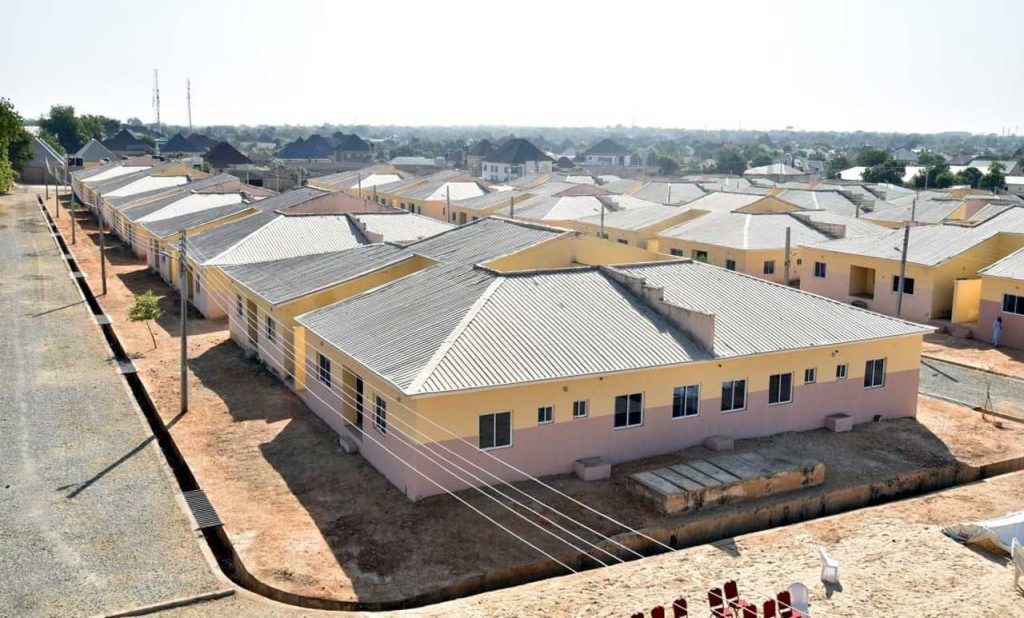Urbanization in Nigeria is experiencing a dramatic surge, emerging as a significant phenomenon with wide-reaching consequences for the country. With a population surpassing 200 million, Nigeria is witnessing a swift urban growth as more individuals migrate from rural areas to cities in pursuit of better opportunities. This trend is driven by factors such as population growth, industrialization, and economic prospects in urban centers.
The rapid pace of urbanization has outstripped the capacity of cities to accommodate the influx of people, resulting in numerous challenges. Among these are housing shortages, inadequate infrastructure, traffic congestion, and the proliferation of slums.
As Nigerian cities continue to expand, addressing these challenges becomes paramount. Sustainable urban development strategies are essential to improve the quality of life for the growing urban population. By tackling these issues head-on, Nigeria can turn the challenges of urbanization into opportunities for economic growth and improved living conditions.
Factors Driving Nigerian Urbanization
1. Pursuit of Knowledge and Education
The quality and extent of education are key factors influencing urbanization in Nigeria. Increasing enrollment in basic and post-literacy education reflects a growing awareness among Nigerians. As people seek modern amenities and opportunities, educated rural dwellers are drawn to urban centers. Rural communities often lack modern features, prompting migration to cities where individuals can achieve their goals.
2. Healthcare
Health is important to human well-being, hence the saying “health is wealth.” Those with resources travel far to access high-quality healthcare. A significant factor driving medical travel to cities is the lack of excellent healthcare services in most rural areas of Nigeria.
3. Transportation and communication systems
Transportation and connectivity significantly influence migration and urbanization. Migration involves decisions about where, when, how, and under what conditions people move. Social and transportation networks, formed through migration, commercial relationships, religious orders, and increasingly online links, play a crucial role in these conditions.
Transportation and communication systems in Nigeria facilitate migration between rural, urban, and state areas. The rise in wheeled transportation modes, such as railroads and roads, hierarchical settlement divisions, a monetized economy leading to cash crop production and mineral extraction, geopolitical reorganization, and industrialization have all contributed to Nigeria’s rapid urbanization and city formation.
4. Employment Opportunities
The migration from rural to urban areas in Nigeria is largely driven by a severe shortage of employment opportunities in rural regions. Cities like Lagos, Kano, Kaduna, Port Harcourt, Enugu, and Sango Ota are industrial hubs with numerous job prospects. Since Nigeria’s independence in 1960, the creation of states and local government units has increased the number of metropolitan centers. The country now has 36 states, a Federal Capital Territory, and 774 Local Government Areas. The capitals and headquarters of these areas have become urban administrative centers with socioeconomic services and job-creating enterprises.
5. Trade
Trade has become a key driver of both local and international migration in Nigeria. As a form of self-employment and a survival strategy in the informal sector, trading provides opportunities for many unemployed individuals who cannot find work in the formal economy. This has led to the emergence of commercial migrants as a new form of migration in Nigeria.
The Igbo ethnic group, primarily from Nigeria’s southeastern region, dominates commercial migration. Their trading destinations include major urban centers such as Lagos, Abuja, Port Harcourt, Enugu, Kaduna, Kano, Calabar, and Jos. In Lagos, business migration to these markets significantly contributes to the city’s growing status as a megacity.

Strategies of Sustainable Affordable Housing
1. Social strategy
Income segregation traps low-income earners in housing deserts with poor infrastructure. This can be tackled by promoting social inclusion and mixed-income communities. This fosters a sense of belonging and collaboration, ensuring everyone has access to resources and participation.
Furthermore, instead of demolishing aging infrastructure, sustainable solutions recommend retrofitting. This creates jobs, improves energy efficiency, and makes existing housing more livable for low-income residents.
Again, high-density, mixed-type housing developments bring residents closer to existing infrastructure while reducing overall costs. This approach not only tackles insufficient infrastructure but also combats income segregation by creating vibrant, inclusive communities.
2. Economic strategy
Economic strategies for sustainable affordable housing involve empowering the private sector to lead housing provision, supported by government incentives like loans and tax rebates. These measures aim to lower housing costs, enabling greater access for low-income households.
Nigeria faces challenges such as inflation, high interest rates, and costly building materials, hindering affordable housing development. Stability in the financial and housing markets is crucial to attract more private investment and control inflation. Additionally, providing housing subsidies in the form of low-interest loans and reducing non-housing expenses can enhance affordability for low-income earners, ensuring broader access to adequate housing.
3. Environmental strategy
Buildings, which consume about 40% of global energy and contribute significantly to greenhouse gas emissions, disproportionately affect low-income populations due to inadequate housing conditions. Implementing energy efficiency measures such as efficient lighting, solar heating, and water conservation technologies can increase housing costs, but incentives like tax reliefs can mitigate this impact.
Additionally, promoting the use of local building materials reduces costs and supports local economies. Efficient land use planning and disaster assessments before development can further mitigate housing challenges for low-income earners, ensuring sustainable and resilient housing solutions.
4. Institutional strategy
Empowering the private sector in mass housing provision can mitigate issues of favoritism and corruption that often exclude low-income earners from housing opportunities. Additionally, revising and updating housing policies regularly to align with current needs and realities is crucial. Transparent procurement processes are advocated to combat secrecy and inefficiencies in government housing projects, ensuring fair distribution and cost-effectiveness.
Furthermore, decentralizing planning and approval processes to local authorities can expedite housing development and reduce bureaucratic delays, facilitating timely housing delivery to low-income groups.
5. Technological strategy
Technological strategies for sustainable affordable housing in developing nations address challenges like inadequate technological expertise and high costs of building materials. Promoting technological innovation and the use of reusable, renewable, and recyclable materials can enhance environmental sustainability and disaster management.
Encouraging local and rudimentary technology development reduces dependency on expensive imported skills and materials, thereby lowering housing costs. This strategy creates local employment opportunities and conserves financial resources, making housing more accessible to low-income earners. By upgrading local resources to sustainable standards through technological advancements, housing development can become more efficient and affordable, benefiting disadvantaged populations in Nigeria.
Bottom Line
Urbanization in Nigeria is undergoing a profound expansion, marking a significant trend with broad implications for the nation. With a population exceeding 200 million, Nigeria is experiencing rapid urban growth as rural inhabitants migrate to cities in search of better opportunities driven by population growth, industrialization, and economic prospects.
However, this rapid urbanization has overwhelmed cities, leading to critical challenges such as housing shortages, inadequate infrastructure, congestion, and the rise of slums. Addressing these challenges is vital for sustainable urban development and improving the quality of life for the growing urban population. By effectively managing these issues, Nigeria can harness urbanization as a catalyst for economic growth and enhanced living standards.



